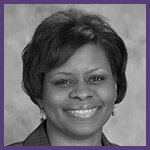What Was Your First Anti-Fraud Role and What Did You Learn?
/This week, the ACFE is proud to recognize more than 35,000 female anti-fraud professionals in honor of International Women's Day. Throughout the week, we’ll share blog posts, resources and exclusive profiles of the women who dedicate their time to fighting fraud. Then, on Sunday, March 8, we’ll make a special announcement here on the blog and on our social media channels.
Members often ask for advice on how to break into the anti-fraud field, so we asked a few of our members, “What was your first job as an anti-fraud professional and what did you learn from it?”
Here’s what these fraud fighters had to say.
My first anti-fraud job was a senior analyst in a telecommunications company. When I first started, I was assigned to look at a specific fraud trend. At first, I didn't quite know where to begin or what to really look at. With the support from my manager and getting access to various data sources, I was able to dig deeper to understand how exactly a fraudster was able to do what they did. It’s very important to not only see the big-picture fraud trend but also look at the little details. It is those little details that help with stopping the fraud activity.
Alice Chong, CFE, Fraud Manager, T-Mobile
My first assignment as an anti-fraud professional was 24 years ago as an entry-level auditor with the Office of the Comptroller of Puerto Rico. At that time the former Comptroller, Mrs. Ileana Colón-Carlo (RIP), used to call us audi-gators, a merge between auditors and investigators. On my first audit assignment, I had the opportunity to investigate a case where a secretary was misappropriating cash received as payments for training. With this assignment I learned the basics of fraud investigations, such as the importance of preserving evidence (chain of custody) and taking sworn statements, among other things.
Hannelore Y. Valentin Fortunet, CFE, Deputy Director, Office of the Comptroller of Puerto Rico
I was brought in to audit the finance and accounting department of a small business where the staff had worked together a long time and were very close to one another. From that job, I learned that fraud can be happening even in places and by people where the business leaders would least expect it. It was very difficult to have to notify the leadership team about what had been happening. I learned to proceed with urgency but still without rushing the process and to make sure that all the evidence was organized so that there could be no arguing the facts. I also saw firsthand how sometimes an outsider can see events much more clearly than teams that have been working together for some time.
Karen Papazian, CEO, K Buildz Consulting
During my first year as a fraud professional, I learned so much about investigating from my colleagues. I would say the most important lesson I’ve learned over the years is to keep an open mind and always be intellectually curious. Anti-fraud professionals should remember that no one fraud case is exactly like another — ask questions, be fair, be thorough and be ready to pivot strategies when necessary as your investigations progress.
Katie Coppa, Senior Fraud Investigator, The Vanguard Group
Being an insurance professional previously employed in the underwriting and claims discipline positioned me to help identify indicators of fraud requiring investigation. I brought that insight to my first formal job as an anti-fraud professional in the Special Investigative Unit. It was in this role where I found my passion for the discipline as well as learned the importance of demonstrating professional skepticism and training and encouraging other business professionals to apply the same.
Arteniece Lee, CFE, Enterprise Compliance and Ethics Manager, State Farm Insurance
I started my career with the Comptroller’s Office, but the reason I remained is because a former boss and mentor encouraged me to pursue a career in fraud investigation. I was hooked after the first case I worked on, which involved a city mayor, missing funds and a pair of earrings in the wrong bed. I learned that healthy skepticism is critical for fraud examiners and that gathering sufficient evidence and documenting adequately are key to successful prosecutions.
L. Rene Brison, CFE, CPA, Deputy Chief Investigator, Tennessee Comptroller of the Treasury
Thank you to each of these members and to all the female fraud fighters out there for your work and invaluable contributions to the global fight against fraud. ACFE membership is open to individuals of all job functions, industries and levels of experience who are interested in the prevention, detection and deterrence of fraud. Our mission is to support you by providing access to the knowledge, resources and training you need to do your job now and at every stage of your career.








